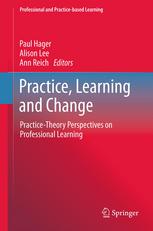

Most ebook files are in PDF format, so you can easily read them using various software such as Foxit Reader or directly on the Google Chrome browser.
Some ebook files are released by publishers in other formats such as .awz, .mobi, .epub, .fb2, etc. You may need to install specific software to read these formats on mobile/PC, such as Calibre.
Please read the tutorial at this link: https://ebookbell.com/faq
We offer FREE conversion to the popular formats you request; however, this may take some time. Therefore, right after payment, please email us, and we will try to provide the service as quickly as possible.
For some exceptional file formats or broken links (if any), please refrain from opening any disputes. Instead, email us first, and we will try to assist within a maximum of 6 hours.
EbookBell Team

4.1
30 reviewsThe three concepts central to this volume—practice, learning and change—have received very different treatments in the educational literature, an oversight directly confronted here. While learning and change have been extensively theorised, their various contexts articulated and analysed, practice is notably underrepresented. Where much of the literature on learning and change takes the notion of ‘practice’ as an unexamined given, its co-location as a term with various classifiers, as in ‘legal practice’ and ‘teaching practice’, render it curiously devoid of semantic force.
In this book, ‘practice’ is the super-ordinate organising idea. Drawing on what has been termed the ‘practice turn in contemporary theory’, the work develops a conceptual framework for researching learning in, and on, practice. It challenges received notions of practice, questioning the assumptions, elisions, conflations and silences on the subject. In so doing, it offers fresh insights into learning and change, and how they relate to practice. In tandem with this conceptual work, the book details site-ontological studies of practice and learning in diverse professional and workplace contexts, examining the work of occupations as various as doctors, chefs and orchestral musicians. It demonstrates the value of theorising practice, learning and change, as well as exploring the connections between them amid our evolving social and institutional structures.